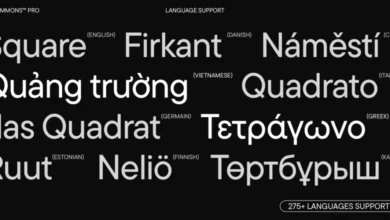The Importance of Transcribing Audio to Text – A Comprehensive Guide
Whether for research, accessibility, or other reasons, transcribing audio to text is crucial for any business. It allows for more effortless coding and analysis of qualitative data and makes audio content more accessible to people who prefer to read over listening.
nnnnLocalization companies use their linguists and advanced technology to provide accurate transcriptions considering context, dialects, and cultural nuances. It ensures that content is optimized for a global audience.
nnnnAccuracy
nnnnAccuracy is essential when you transcribe audio to text manually by a transcriptionist, freelancer, or transcription agency or automatically by speech recognition software. Transcriptions need to be accurate for them to be useful for accessibility, content creation, and qualitative research purposes. It means that all the spoken aspects of a recording, including pauses, hesitations, and interruptions, must be transcribed. In addition, the use of tags (ellipses, sneezes, coughs, etc.) and markers (e.g., “sarcasm,” “frustration,” or “emphasis”) must be identified.
nnnnAccurate audio transcripts allow content to be repurposed into blog posts, social media posts, or articles. They can help reach an audience that may need access to or be in the mood to listen to a recording. It also allows for the inclusion of subtitles or captions to videos, which can further increase the reach of a piece of content by making it available to viewers who are deaf, hard of hearing, or have impaired vision. A recent study found that video transcripts resulted in significantly higher click-through rates on social media.
nnnnTime
nnnnTranscribing audio to text takes a lot of work, especially for professionals who need accuracy and speed. Listening to audio and typing out the words takes time and concentration; if not done correctly, it can result in many mistakes.
nnnnProfessionals needing accurate transcripts can hire a human transcriptionist or use automatic speech recognition software. However, each has its benefits and costs. Using an automated service can be faster but requires more attention, and the quality of the output depends on how well the software understands the accent and vocabulary of the speaker. Doing it manually means spending a lot of your time, which can be costly for those working in professions where time is billable.
nnnnRegardless of which method you choose, the ability to convert your audio files into a text-based format has many vital uses. It allows individuals with hearing impairments to access your content effortlessly, enables easier search and organization of information, and facilitates qualitative data analysis. Plus, it makes your content more shareable and can improve SEO.
nnnnAccessibility
nnnnThe text-based format of audio transcripts allows users to search for the information they need easily. Additionally, transcribed content can be quickly repurposed for different formats or platforms. It makes reaching a wider audience and expanding your business’s reach easier.
nnnnAdding captions to your audio content also makes it accessible for people with hearing disabilities and those who prefer to read instead of listen. Closed captions can be added to pre-recorded audio and video files, as well as live content. Harvard’s Digital Accessibility Policy cites Web Content Accessibility Guidelines 2.1 AA as a standard, recommending that audio and video-only content feature transcripts or subtitles.
nnnnTranscription services provide a cost-effective solution to creating high-quality online content for businesses with limited time or budgets. Professional transcription services offer quick, accurate audio-to-text conversion and can also provide expert editing support. With their experience, these companies can help clients save valuable time and resources by providing quality transcriptions ready for publication or translation. Moreover, they follow best practices and deliver results on time.
nnnnLegality
nnnnTranscribing audio into text format has a wide range of uses. It is a way to save time and effort while also increasing accessibility for people who cannot watch video content or listen to audio files. It is also an excellent tool for business conferences, allowing participants to take notes and follow discussions more effectively. It is also much easier to share transcribed audio than an audio file.
nnnnLegal transcriptions are vital because they provide accurate transcripts of court proceedings, which can help attorneys prepare for a case. They also enable family members unable to attend trials and hearings to keep track of the proceedings. Moreover, transcribed audio can be helpful in the deaf community by providing captions or subtitles to videos and audio files.
nnnnHowever, converting audio to text requires careful consideration of copyright laws and licensing requirements. Unauthorized conversion may infringe on copyright laws, leading to legal complications. Hence, working with a legal transcription service with a substantial compliance and privacy reputation is vital.
nnnnSEO
nnnnWhile some content creators ignore transcription’s importance for audiovisual media, Google claims that adding transcripts to your content can improve SEO. The reason is simple: audio and video files are not typically machine-readable, but text can be. It means that transcribed media is easily discoverable and indexable by search engines, especially when keywords are included in the text.
nnnnIn addition, a transcription opens up your content to a much larger audience than audio or video alone. Imagine if you could read a video, podcast, or lecture without turning on the sound! It is especially beneficial for users with hearing and vision impairments.
nnnnA professional transcription service is a worthwhile investment for any business or organization that produces audiovisual media. Whether it’s for archival purposes or to expand the reach of your content, an audio-to-text conversion service is an indispensable tool. By converting your audio content into text, you can ensure that your message is heard by everyone who wants to hear it. And by leveraging the power of search engines, you can boost your website’s visibility and traffic!
n


